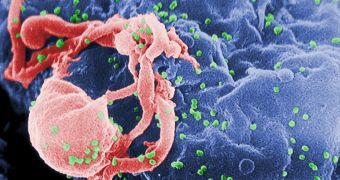According to the conclusions of a new scientific investigation, the drug lopinavir, commonly used to attack the human immunodeficiency virus (HIV) and to treat AIDS is effective in killing off the human papilloma virus (HPV), a pathogen known to cause cervical cancer in women.
This is a very important discovery, since cervical cancer affects a very large percentage of the world's female population. The work was led by scientists at the University of Manchester in the United Kingdom, and the Kenyatta National Hospital (KNH) in Nairobi, Kenya.
Details of the work have not yet been submitted for publishing, but are expected to appear in a medical journal soon. The clinical trial the team conducted is the first-ever of its kind, and saw 40 Kenyan women with early-stage cervical cancer receive the anti-AIDS drug.
Following just a short course of treatment, most of the women in the study group returned to normal, and displayed a reduction of their low- or high-grade pre-cancerous symptoms. The results are also scheduled to be presented at two major conferences, in late February and early March, respectively.
The investigation was led by University of Manchester doctors Ian and Lynne Hampson, with the Institute of Cancer Sciences, and KNH Obstetrics and Gynecology consultant Dr. Innocent Orora Maranga, Science Blog reports.
In the study, cervical cancer patients received the antiviral drug twice a day for 2 weeks. Pap smears collected one month later showed some improvement, while tests conducted 3 months later showed definite progress Some 83 percent of women with high-grade cervical cancer risk returned to normal.
All other 17 women, who had been diagnosed earlier with borderline or low-grade forms of the disease, returned to normal after taking lopinavir. No significant adverse reactions were reported in the study group, and images of the cervix showed that HPV-induced lesions had disappeared.
“For an early stage clinical trial the results have exceeded our expectations. We have seen women with high-grade disease revert to a normal healthy cervix within a comparatively short period of time,” explains Dr. Ian Hampson.
“We are convinced that further optimization of the dose and treatment period will improve the efficacy still further. It is our hope that this treatment has the potential to revolutionize the management of this disease most particularly in developing nations such as Kenya,” the expert concludes.

 14 DAY TRIAL //
14 DAY TRIAL //